France faces fresh pension protests as government, union talks fail
France is bracing for a new round of nationwide protests against President Emmanuel Macron's pension reform plan after talks between the government and labor unions ended in a deadlock.
After the meeting with Prime Minister Elisabeth Borne on Wednesday, all unions called on the French people to join marches across France on Thursday, marking the 11th day of industrial action since January.
The unions said the meeting made no progress after Borne refused to discuss going back on the minimum retirement age of 64. It was the first such gathering between the two sides since the government presented the contentious bill in January.
“The prime minister replied that she wished to maintain her bill. A seriously bad decision. This reform is rejected by almost the entire population. It must be withdrawn,” the unions said in a joint statement after the meeting.
“We will not come back to the negotiating table as if nothing had happened,” the statement added.
Sophie Binet, the freshly appointed head of CGT trade union, told reporters that the unions had decided to leave the meeting after an hour as they considered it “useless” and that “the prime minister has chosen to send us back to the streets.”
“We have to continue mobilizing until the end, until the government understands there is no way out other than withdrawing this reform,” Binet said, adding that, “The government will not be able to govern the country until this reform is repealed.”
Despite refusing to budge on the issue, Borne said right after the meeting that she would not move forward with any other labor topics “without social partners” and noted that “our disagreement on the raising of [retirement age] prevented us from discussing in-depth” other topics such as labor conditions.
After the failed meeting with unions, far-left leader Jean-Luc Mélenchon on Wednesday accused Borne of “transforming a social crisis into a political crisis because of her obstinacy.”
An aide to Macron said on the condition of anonymity that there was no “democratic crisis,” adding, “You can't speak of a democratic crisis when the bill has been enacted, explained to the public and the government is taking responsibility for it.”
Paris public transport operator RATP predicted traffic would be almost normal on Thursday. Railway services were expected to be more heavily disrupted and the civil aviation authority asked airlines to cut flights by 20% in cities like Bordeaux and Marseille, but not at Paris airports.
Some 20% of primary school teachers are also expected to join the strike, local media quoted the Snuipp-FSU union as saying, down from 30% for March 28.
Strikes are still disrupting operations at oil refineries and nuclear plants, while garbage collectors have vowed to resume their protest next week.
Popular outrage over Macron imposing the bill without a parliamentary vote has sparked daily clashes between protesters and police in French cities over the past weeks.
Macron has said the legislation would come into force by the end of the year despite escalating tensions and calls for his ouster. The government has argued that the changes are necessary to prevent the pensions system from plunging into deficit.
The latest wave of demonstrations represents the most serious challenge to the authority of Macron — who is on a state visit to China — since the “Yellow Vest” revolt four years ago. Polls show a wide majority of French people oppose the pension legislation and the government's decision to push it through parliament without a vote.
If the Constitutional Council gives its green light on April 14, Macron will be able to sign the changes into law. The council has the power to strike down the bill or parts of it if it considers it as breaching the constitution, but it rarely rejects entire bills.

France detains Iranian journalist amid crackdown on pro-Palestinian voices

Israel revokes visas for 27 French MPs after Macron signals support for Palestinian state
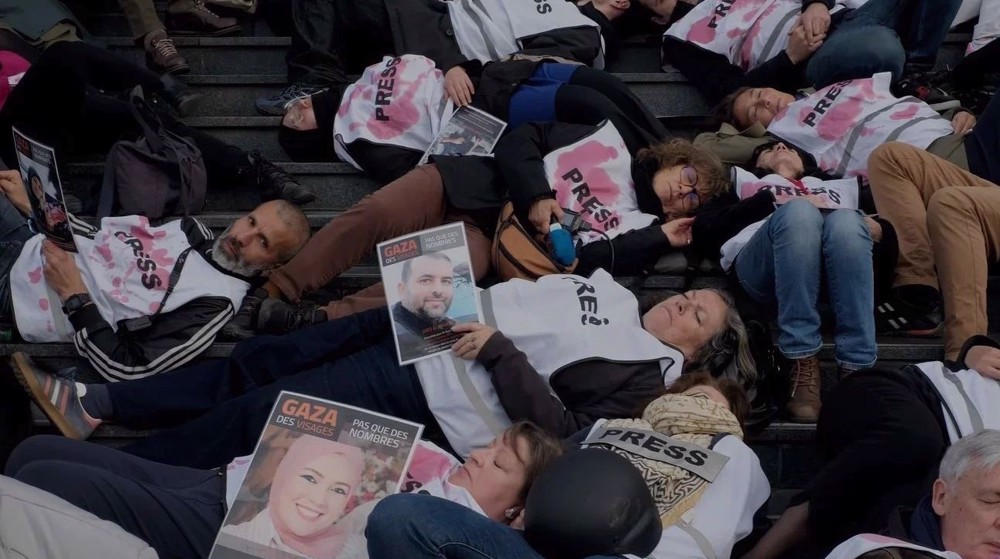
French journalists stage 'die-in protest' in support of Palestinian reporters
Over 100 rabbis, cantors slam Trump for pro-Palestine campus crackdown
Nearly 30 Palestinians killed in fresh Israeli strikes on Gaza
VIDEO | Press TV's news headlines
FBI, local police raid homes of pro-Palestine activists in Michigan
Trump ratings low amid US economic turmoil
VIDEO | Trump tariffs: A wrecking ball!
Israel deprives Gazans of basic needs for ‘survival’: UN
South Africa has no choice but to support resistance against Israel's genocide in Gaza


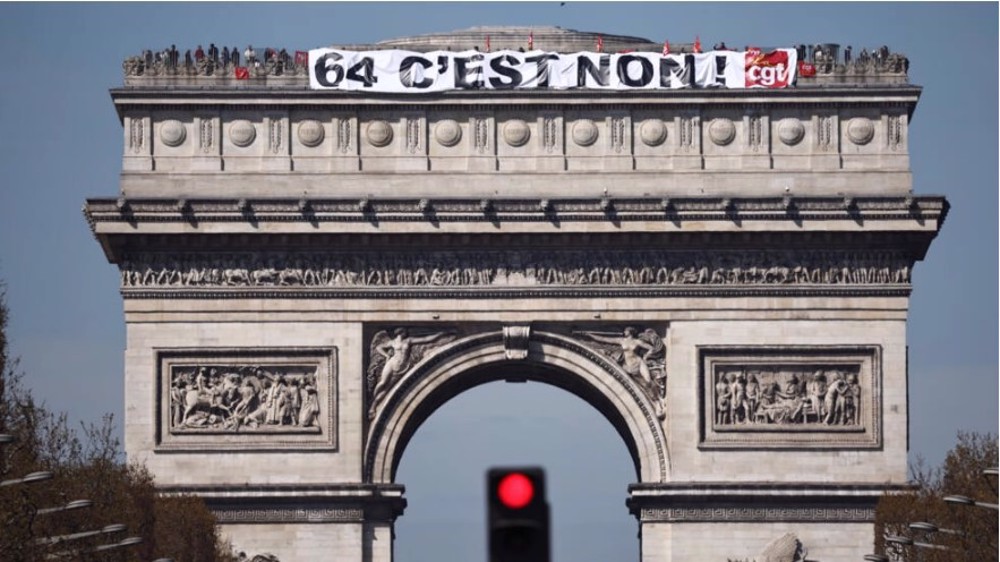
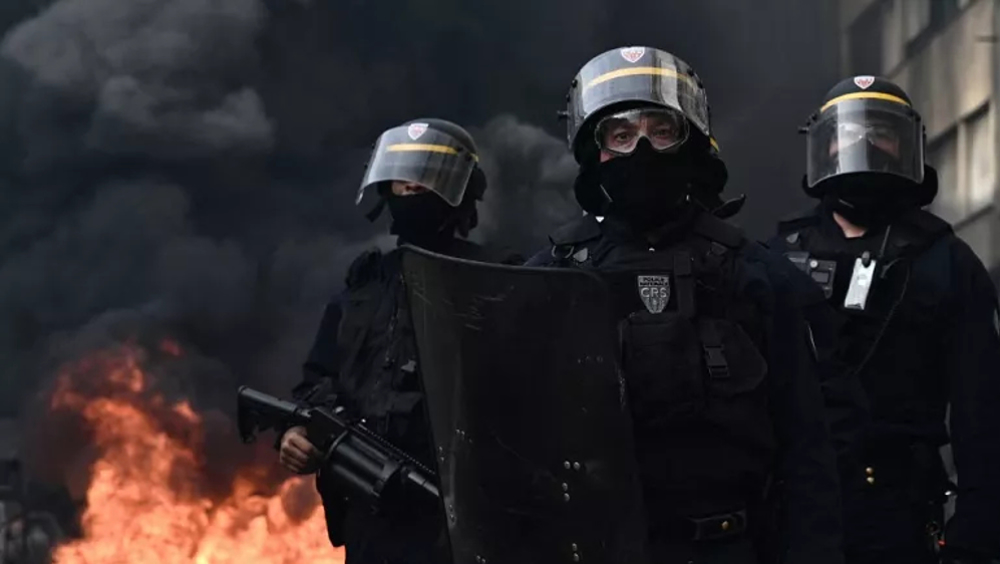
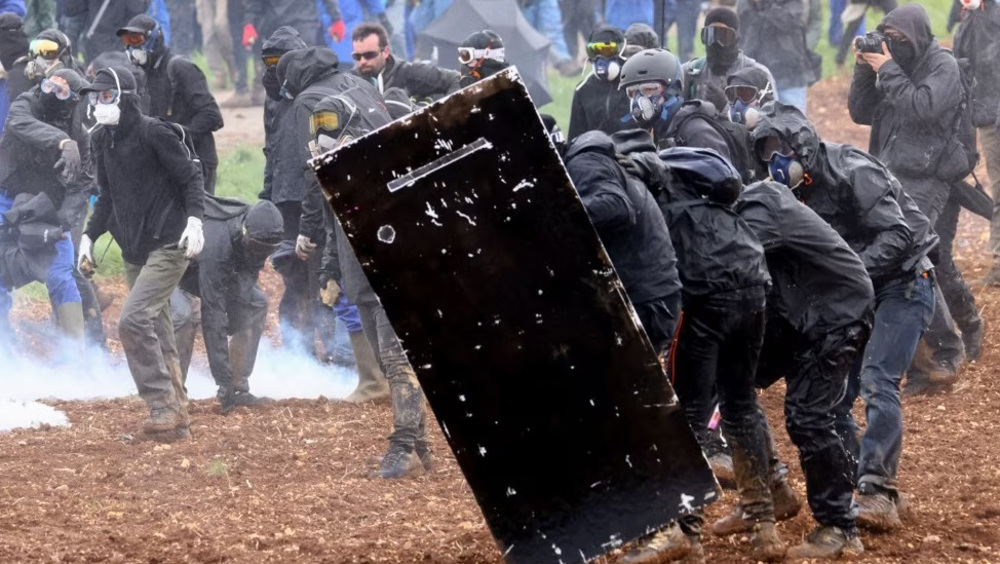



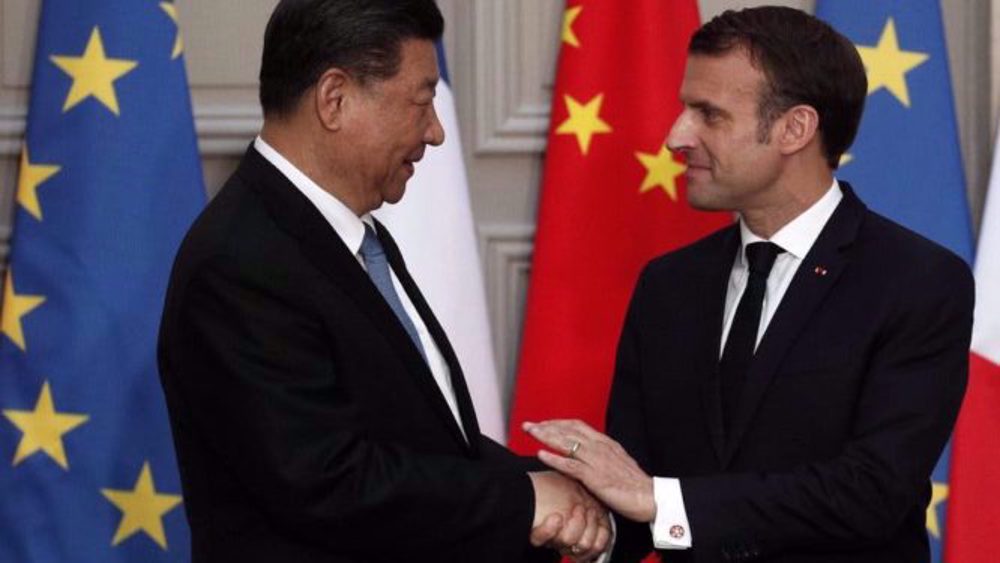

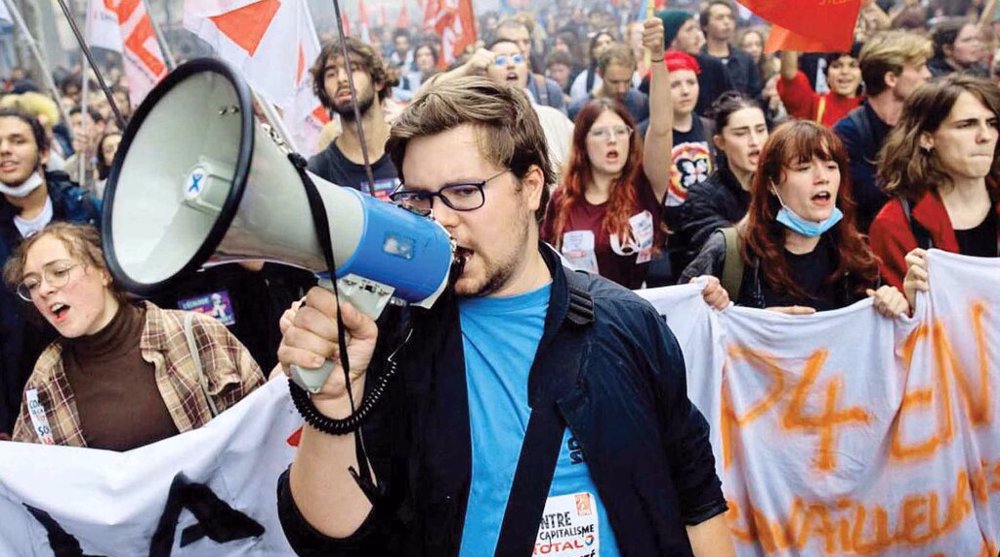

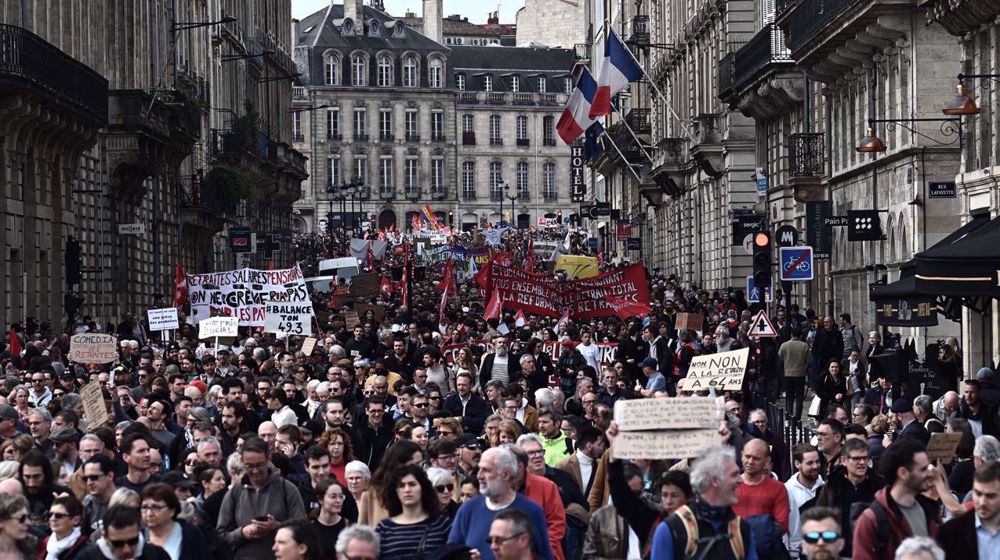


 This makes it easy to access the Press TV website
This makes it easy to access the Press TV website